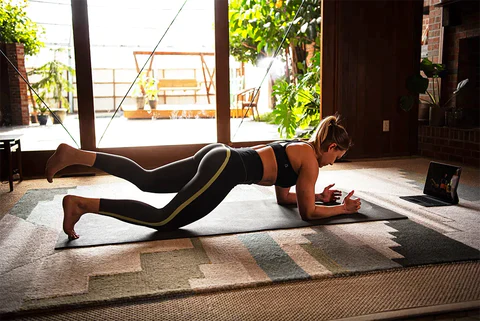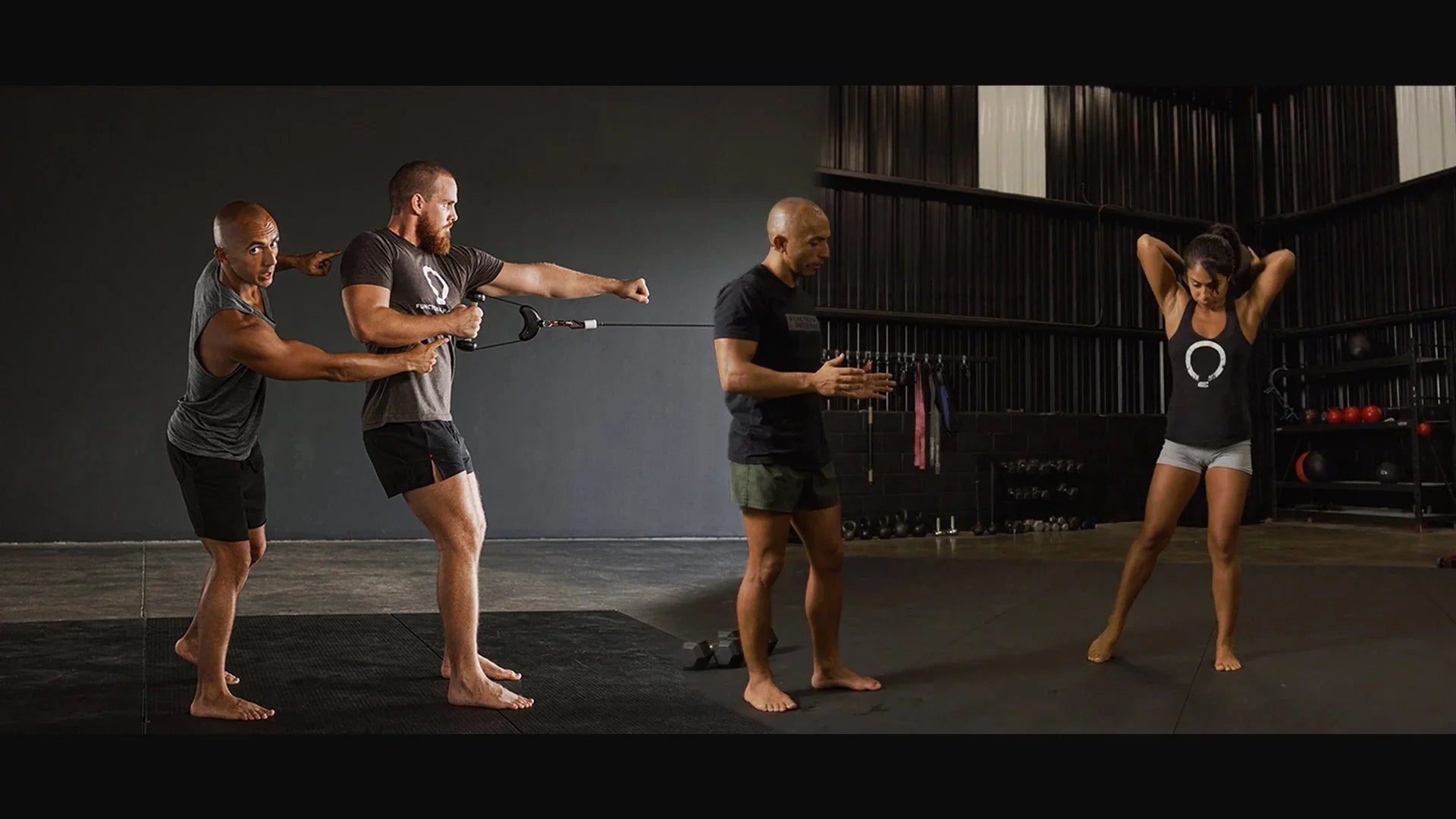Introduction
When it comes to the world of health & fitness it seems there is no area where modern technology can’t play a role, the WHOOP watch is no exception. The WHOOP fitness tracker records data 24/7 giving you feedback on such metrics as your resting heart rate, heart rate variability (HRV), blood oxygen levels, skin temperature and strain which measures the physical and mental stress you put on yourself daily. All of the metrics of the WHOOP are calibrated to your individual baseline. The WHOOP and similar gadgets are primarily used to track sleep, giving a score of 1-100 and providing coaching on how to optimize your sleep, along with letting you know if you are ready for a strenuous day or perhaps should take it easy and recover some more. All very useful information to assist in optimizing sleep and energy use.
Before we go on I should clarify that this article is not to break down why the WHOOP watch is not worth using, on the contrary, it is, many FP practitioners use WHOOP or similar gadgets to track internal metrics to assist in decision making as it relates to physical output and building a healthy sleep routine. The purpose of this article is more about prioritization of where best to invest time and money as it relates to long term health.
Less is more
We’ve all heard this term before, most of us repeat it but don’t really understand what it means. When it comes to health and longevity it applies well. Most of us cram our days with too much stimuli. Fill our evenings with even more and go to sleep much later than we should. Little by little we exhaust ourselves, deplete our nutrient stores and effectively live in a state of perpetual stress. This is what the modern world has become, high octane hussle culture that pushes for more and more.
The WHOOP, although a useful tool is really just a response to this type of culture, a tool designed to help strung out people build some sort of sustainability into their routine, lest they succumb to adrenal fatigue, or worse. It is also something that keeps us tied to our devices, another strand in the ever tightening noose of technological progress.
We only have enough brain power at the conscious level to compute 4 novel ideas at any one time, in this day and age we are bombarded with novel information all day, it is quite literally overwhelming us, affecting our baseline stress (Allostatic load) and our ability to properly rest and relax, add to that blue lit screen time and coffee and we are redlining at 11 with no end in sight. Sounds grim, it is.

FP’s Hierarchy of needs
At FP we advocate a fairly simple approach to living, we look at what it is to be an organism that evolved over millions of years, within a natural environment and try our best to somewhat emulate that. Of course we are no longer living in that environment but that does not mean our physiology no longer needs it. If we were to illustrate a hierarchy of needs as it relates to being a modern day Human, it would look something like this.

At a base level, to stay healthy we really don’t need much in the way of technology, save for a few primitive tools to train with. In this light the WHOOP is a luxury that, although useful, isn't going to be a defining piece of the health puzzle, moreso a way to optimize once you have already taken care of your needs at a baseline level.
So how do we go about attaining our needs?
This is the easy and the difficult part. First step is really to begin working on your biomechanics, how you move really is the number one priority. Why? Because health runs through an efficient system and poor health runs through an inefficient one. The more out of whack your body is, the higher the likelihood something is going or will go wrong. Much like poor suspension on a car unattended will result in some sort of mechanical failure down the line, if your body moves asymmetrically then it is only a matter of time before wear and tear takes place. In our view once your joints start failing then this is a slippery slope to come back from.
Next is receiving adequate sunlight. This study indicated that avoidance of the sun could be a risk factor for death of a similar magnitude to smoking 1. And this study states that Non-smokers who avoided sun exposure had a life expectancy similar to smokers in the highest sun exposure group 2. This highlights just how important it is to get out in the sun. Of course we advocate to do this carefully and not just roast yourself but to slowly build up an adaptation to sunlight. Many FP doers over the years have been doing this and experiencing beneficial health gains as a result.
Eating good quality whole, organic food, grass fed meat and wild caught fish (all preferably local) is next on the list whilst also avoiding inflammatory grains and processed seed oils. These days we have access to all these things and really it just comes down to prioritization, planning and time management to achieve.
Lastly, avoiding toxic environments where possible i.e. going out drinking and partying, being around people that influence poor health choices and minimizing time spent on devices, especially at night time where blue lit screens can wreak havoc on our circadian rhythm. All these things are cheap and easily achieved provided we are willing to do less and tune into the boredom.

What are the pitfalls of using a WHOOP device?
The WHOOP is a useful technological device designed to help us track our internal metrics to better guide us to better choices. It is not a fix all and cannot account for all variables. For example, in tracking strain on the system it will measure long walks as a high strain yet barely registers anything when doing FP corrective exercises, which by their nature exert massive strain on the body, so this is a somewhat inaccurate read on what is actually happening and suggests that perhaps it is just measuring steps taken or distance covered, much like a step counter. The red LED sensor is also prone to interference, especially when there is movement, that's why WHOOP only uses its pulse oximeter for sleep tracking.
As a fitness device there are probably better products out there but when it comes to tracking sleep it is certainly useful for that provided we actually take the steps to make necessary changes. It can also be uncomfortable for those that don’t like to wear a wrist watch type device and the band can get quite sweaty if you're wearing it all day. Lastly, it can be easy to just simply become complacent and ignore the information it is giving you, the WHOOP is a feedback system. It is always upon us to take that information and use it to our advantage, in a world of instant gratification it is very easy to just lose interest and look for the next quick fix.

To WHOOP or not to WHOOP?
In short, yes, but not before you have taken care of the rest. If you are someone that can afford to buy a WHOOP watch or more accurately pay the monthly subscription fees then by all means go for it, but do so knowing that it will not help if you don’t change your lifestyle to be more conducive to sustainable health. Being healthy is simple, we are animals born of a natural world that have biological needs tied to the natural world. The difficulty is breaking free from traditions and norms that funnel us toward poor health and degeneration.
At FP our methods may be unconventional, but to be well adapted to a sick society is not a measure of health and we simply take the measures necessary to become healthy, productive individuals with the goal of creating a better, more balanced society. We advocate the use of technologies (like the WHOOP) where it fits, but also to just chill out, get back into nature and take the time to figure out your dysfunctions. The results, well we see them all over, the blueprint for health lies not in modern technology but in our own connection to the natural world, this is the path we advocate for and one that seems to work.
Until next time we remind you to live intentionally, not habitually.
References:
- https://www.medscape.com/viewarticle/860805?form=fpf
- https://onlinelibrary.wiley.com/doi/full/10.1111/joim.12496







